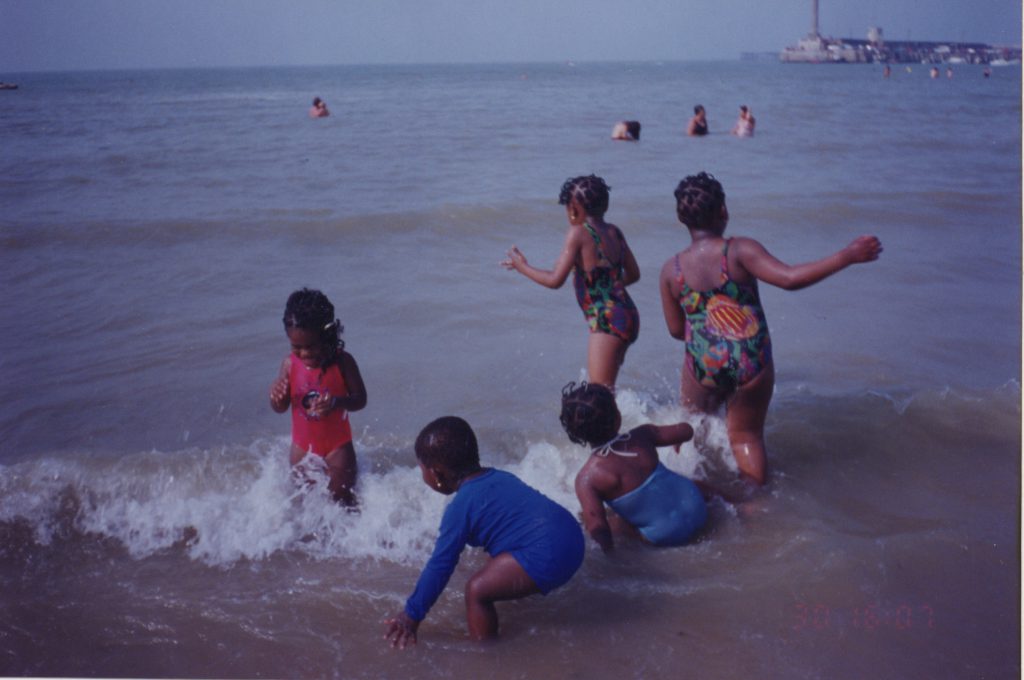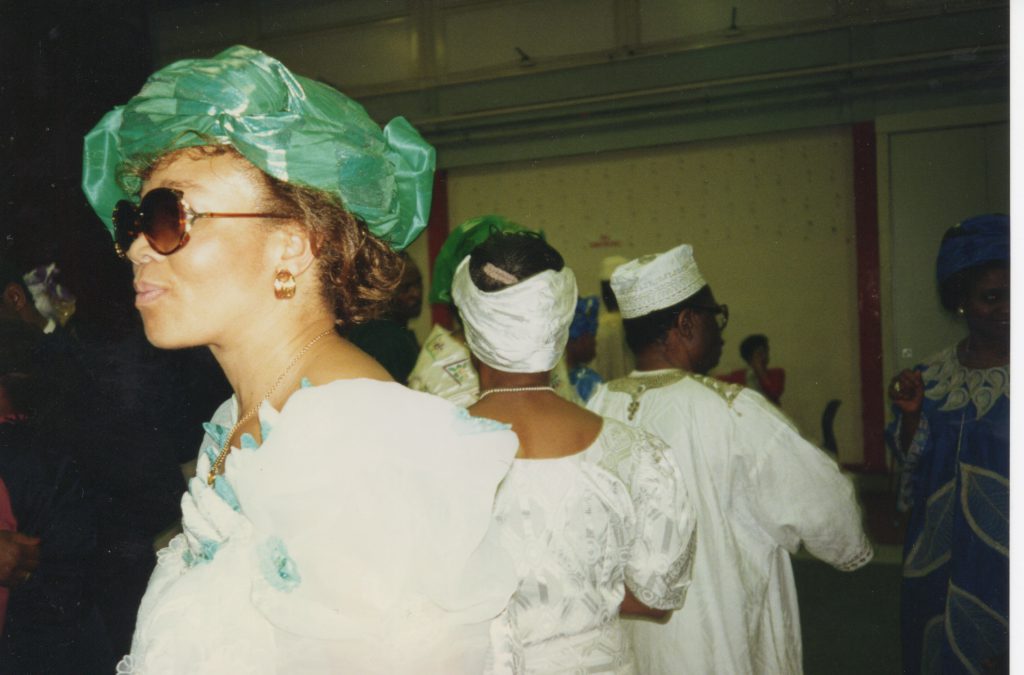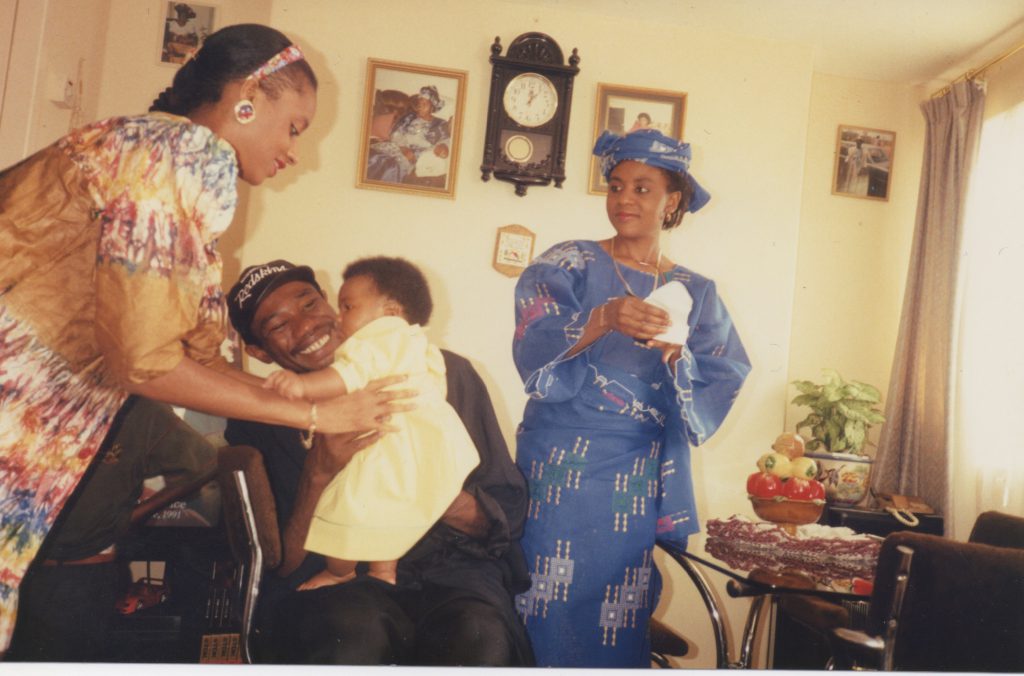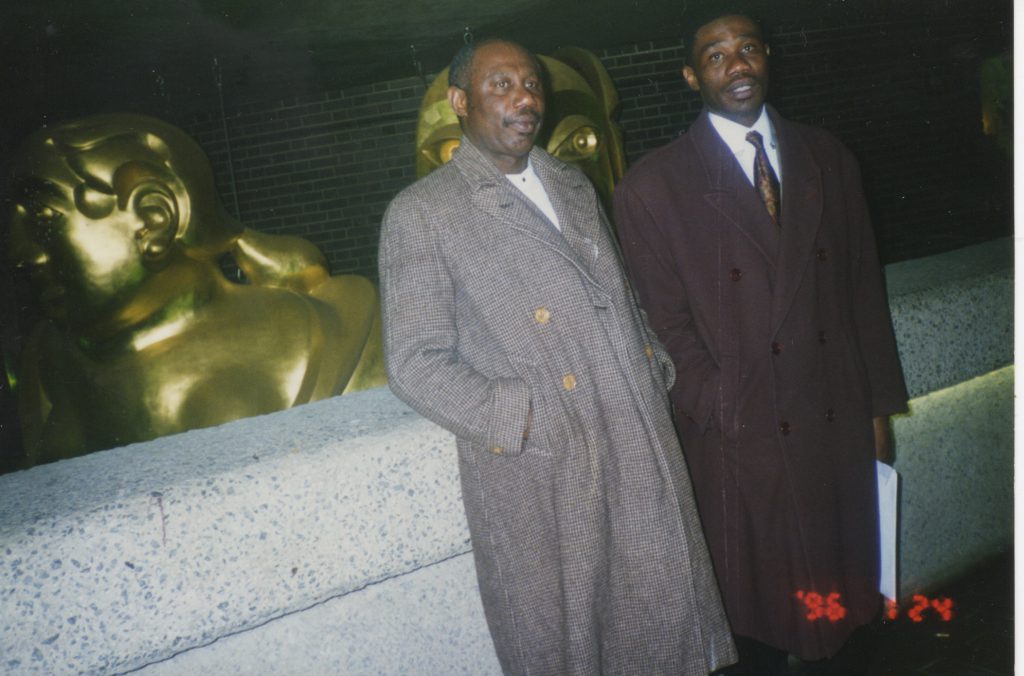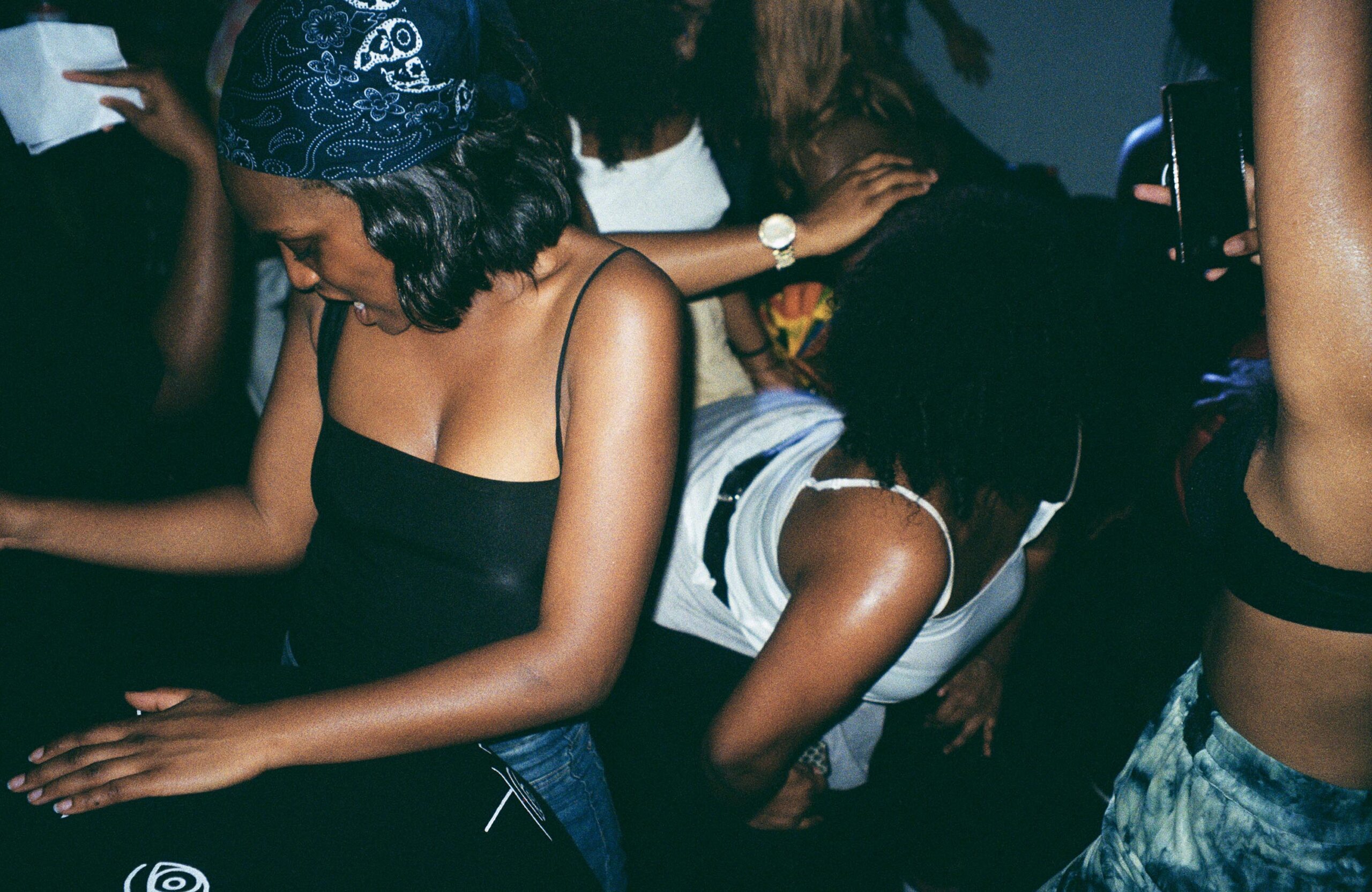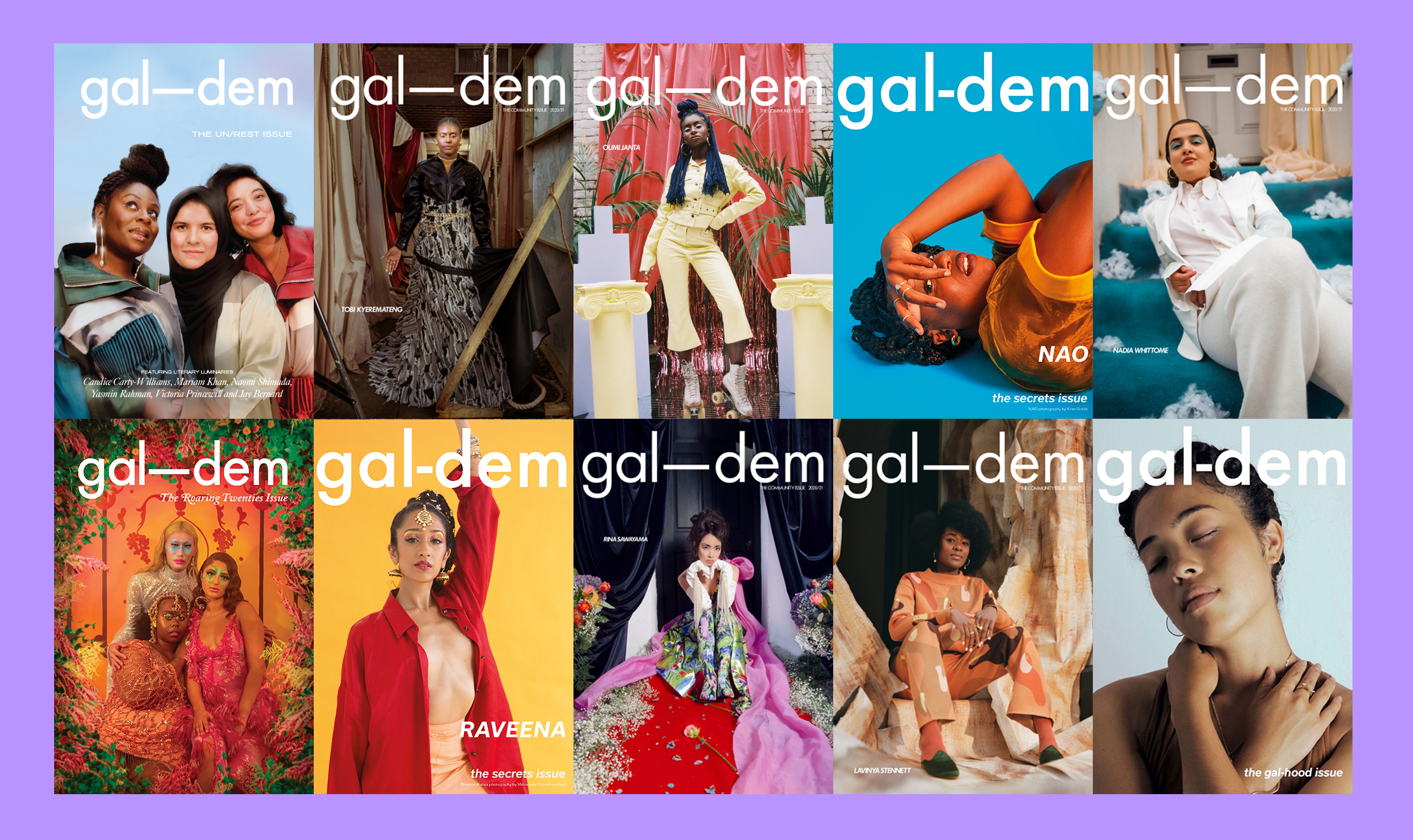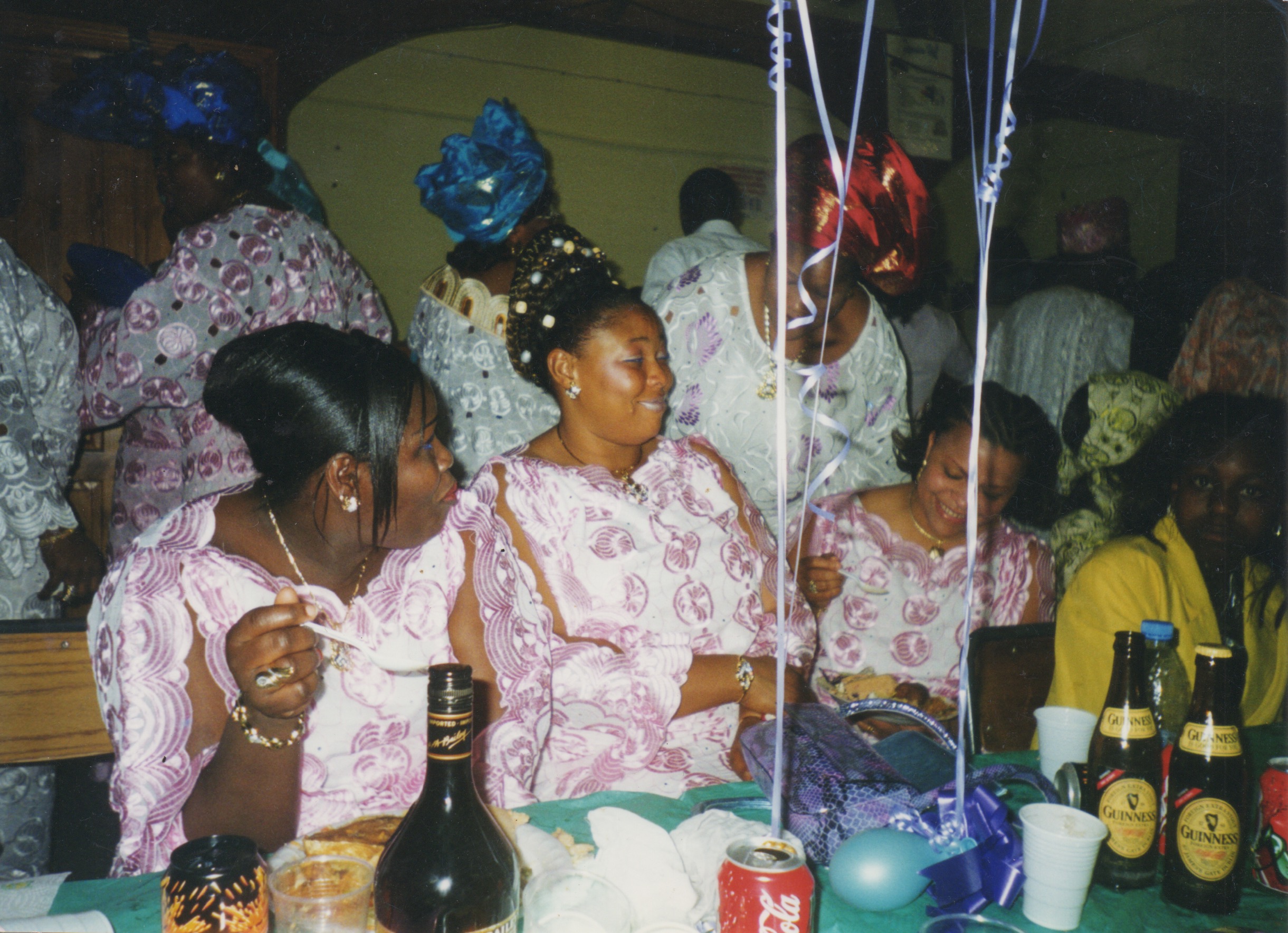
Black In The Day: creating an online archive of black British life through our own lens
Grace Shutti
16 Aug 2016
Social media has become a haven for #melanin, instagramming your trips “back home”, and tweeting videos of that carefree aunty who dared to whine harder than the rest at your mum’s 50th. Aspiring to create a platform that will last beyond Instagram likes and Twitter legend are Black In The Day co-founders Tania Nwachukwu and Jojo Sonubi. Their vision is to collate an online archive of black British life from the 1950s to the early 2000s, filled with crowd-sourced photographs.
Over email, Nwachukwu – a poet, dancer and actress (“I’m one of those people who do too many things”) and Sonubi – a freelance graphic designer and videographer – detail the process that brought their project to life.
When Sonubi began creating visuals for a poem based on Nwachukwu’s parents, talk turned to their family’s immigrant experiences and soon after, the photographs that encapsulated these stories. Like any good idea, it began with, “you know what would be sick yeah…”.
Similar to the work of Malick Sidibé, Dennis Morris, and more recently Adama Jolloh, Black In The Day’s focus on snapshots will tell us more about the time than just words could. Nwachukwu recounts “Seeing pictures of my Mum at parties when she was in her twenties. She and her peers, immigrants navigating a strange country, dressing in their finest threads and enjoying their lives despite the hostility and hardships they were facing.”
Thinking of the bulging plastic bags and albums that hold my own family photos, I recall images of my fresh-faced mum and her friends wearing matching denim outfits within months of their move from Nigeria. Their beaming faces suggest happiness, but no doubt they all had their own bouts of homesickness or trepidation.
It’s important stories like this are told. In a world where black culture is dominant in music, fashion, art and even TV shows are beginning to represent us, black Britons are beginning to crave nuanced stories. “Being black in the UK isn’t this one monolithic experience, but people would have you thinking otherwise”. Nwachukwu’s estimation brings to mind the countless films set in council estates that showcase young black boys and girls as they face of drug deals, love and violence. Or the reality that black men represented in newspapers are most likely criminals or footballers – much less of black women. Whilst that’s obviously true for some, “telling the vast range of stories and documenting them is even more important”.
Increasingly, people want a narrative that diverges from that of the United States. With young students challenging schools to make the curriculum more reflective of Britain’s multicultural history, this is a discourse Sonubi knows all too well. “In school we were only taught about slavery”, he explains. “They didn’t tell us about stuff like Queen Victoria’s Nigerian goddaughter Sarah. So this project will serve as an educational platform, especially for our kids man”.
The timing of the archive hasn’t gone unnoticed either and “was conscious”. The project finds us in national discourse about race as the killing of unarmed civilians in the US raises questions of the UK’s own shocking record of deaths in police custody. It also finds us five years on from the killing of Mark Duggan and the subsequent riots that spread across the country. “We’ve been sitting on the project since February and we were waiting for the right time to announce it”, tells Sonubi. “July came around and we saw conversations about race dominate our timelines”. For many it’s been a time of learning but also distress. Hopefully, Black In The Day will add a positive and enjoyable spin to the conversation.
Once the collection is complete, the duo are planning an exhibition to accompany the online archive and are exploring new options daily. “Eventually we’d like to have a book too. Coffee tables, classrooms and libraries,” writes Nwachukwu. For now, they just want you to get involved. “[Go] through [your] photo albums at home or at [your] grandparents’ and [send] them our way.” Photos need to be scanned but to liven up the process, the duo are planning scanning socials in London. The first is on 3 September at Dark Sugars on Brick Lane. It will give participants the opportunity to “meet us, meet other people, listen to two-two tunes, shake a leg and grab a chocolate.”
To submit your photos to Black In The Day, please send scanned images to: submit@blackintheday.co.uk or submit via their website.

